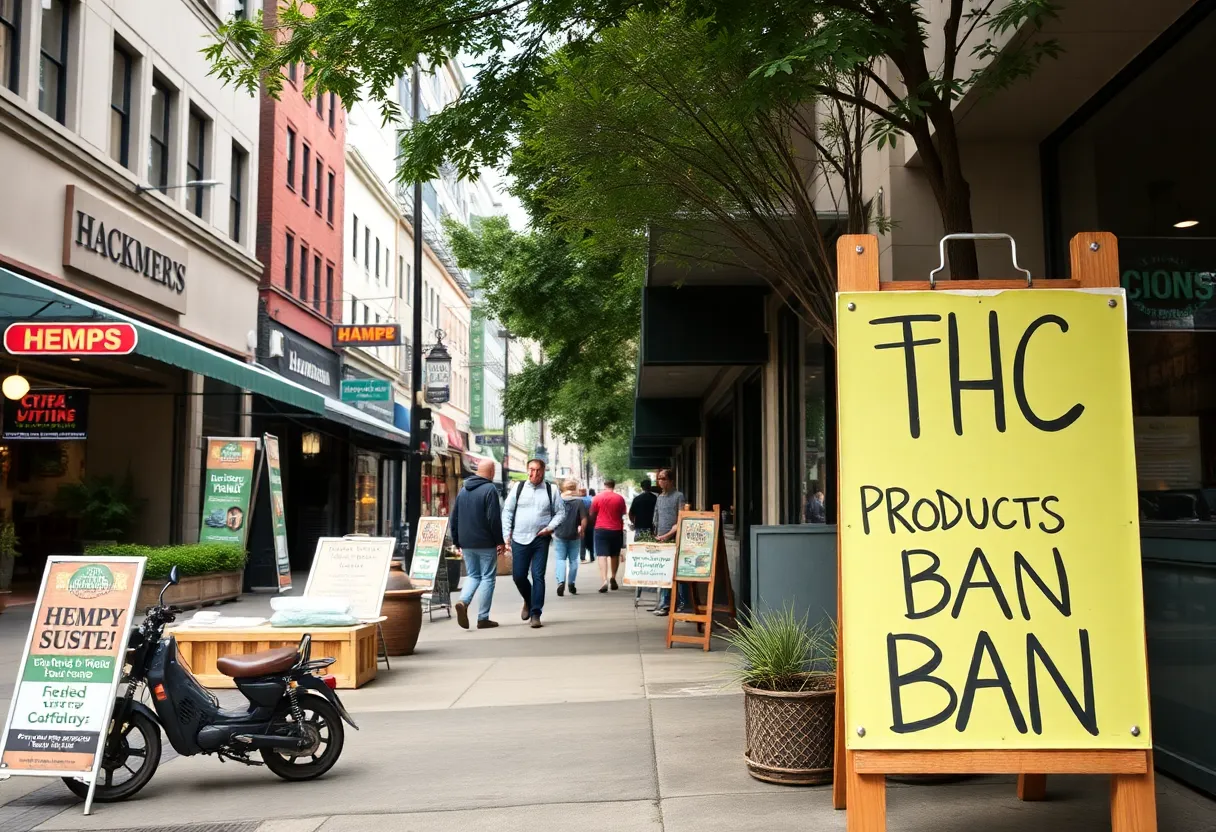News Summary
The Texas Senate has passed Senate Bill 3, banning consumable hemp products with THC, creating uncertainty for Houston’s thriving hemp sector. Local businesses, like Bayou City Hemp Co., are at risk, potentially relocating if the ban is implemented. With economic impacts projected to hit $27 million by 2027, the future of the hemp industry hangs in the balance amid concerns over public safety and unregulated products.
Houston Industry Faces Uncertain Future with New THC Ban
In a surprising move that has left many small business owners in Houston feeling uneasy, the Texas Senate has passed Senate Bill 3, which puts a ban on all consumable hemp products containing tetrahydrocannabinol (THC), except for products that include cannabidiol (CBD) or cannabigerol (CBG). This sweeping legislation threatens the livelihood of hundreds of local businesses, particularly in the booming hemp sector.
The Ripple Effect on Local Businesses
One of the businesses hit hardest by this legislation is Bayou City Hemp Co., which plans to expand into what would become the largest THC beverage facility in the U.S. Located in west Houston, Bayou City Hemp Co. envisioned a major expansion on a 4-acre site, but the sudden passage of this bill puts those dreams at serious risk. The company, already selling THC-infused beverages through major retailers like H-E-B, Kroger, Walmart, Total Wine & More, and Spec’s, is now contemplating relocating to a state like Florida if a full ban takes effect.
With around 99 businesses currently holding consumable hemp products licenses in Houston and a staggering 410 businesses registered for retail hemp, the economic fallout could be profound. The Texas general revenue fund may see a negative impact of approximately $27 million by 2027 due to lost tax revenue, which echoes the concerns of local business owners who rely on this industry for their livelihoods.
Concerns Over Public Safety and Unregulated Products
The legislation is aimed at addressing rising public concerns linked to unregulated THC products that flooded the market following the legalization of hemp in the U.S. under the 2018 Farm Bill. Lt. Governor Dan Patrick has been vocal about his intention to ban THC products, citing worries about unregulated retailers, especially those believed to target children. The spike in the number of smoke shops offering THC products in Texas has been notable, with around 8,000 such stores emerging in recent years.
A Different Approach in the House
While the Senate has taken a hard line, the Texas House is toying with a different approach to the issue. The companion bill, House Bill 28, proposes regulations rather than an outright ban, which could offer a more balanced solution for businesses while still addressing safety concerns.
Public opinion in Texas regarding marijuana legalization is complex. Recent surveys show that while a significant 69% of residents support legalizing personal-use marijuana, 55% also favor measures to regulate THC products. This mixed sentiment casts uncertainty over how the legislative discourse will continue to unfold.
Consequences for Small Businesses and Economic Impact
Critics of Senate Bill 3 argue that a total ban will hinder legitimate businesses and will fail to effectively tackle the black market for THC products. They are advocating for focused regulations instead of a blanket prohibition, such as age restrictions and child-resistant packaging. According to the Texas Department of State Health Services, licenses for consumable hemp products cost $258 each, and retail hemp registrations are $155—a considerable investment for many small business owners.
The failure to address unemployment and potential losses in sales tax revenue could create a significant economic ripple effect throughout the state, raising alarms for local economies that depend heavily on the hemp industry.
What’s Next for Texas Hemp Industry?
As the legislation inches closer to becoming law, the Texas Compassionate Use Program will remain untouched, allowing for some medical use of low-THC cannabis under specific conditions. Still, the broader implications of SB 3 are looming large over Houston’s burgeoning hemp industry, posing questions about the future of many small businesses and the livelihoods of the people who rely on them.
Only time will tell how this will unfold, but one thing is clear: the stakes are high, and the future of the Texas hemp industry may depend on the passionate advocacy for responsible regulations.
Deeper Dive: News & Info About This Topic
- ABC 13 News
- KBTX News
- Houston Chronicle
- KVUE News
- Fox 7 Austin
- Wikipedia: Tetrahydrocannabinol
- Google Search: Texas THC ban
- Google Scholar: Texas THC legislation
- Encyclopedia Britannica: Marijuana
- Google News: Texas hemp industry






